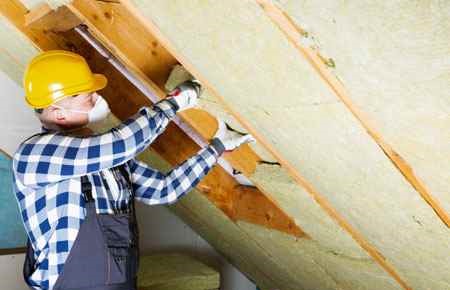
Insulator Major
A program that prepares individuals to apply insulation materials to pipes, boilers, ducts, refrigeration systems, and related equipment to reduce the passage of heat, cold, sound, or fire.
Includes instruction in insulation specifications, measuring and cutting insulating material, applying and securing insulation, installing vapor barriers, insulation system maintenance, asbestos removal and abatement, and safety training.
What can you do with a major/degree in Insulator Studies?
Insulators typically need a high school diploma or equivalent to enter the occupation. They may learn their trade through apprenticeships or on-the-job training. Technical training includes learning different installation techniques, blueprint reading and sketching, general construction techniques, safety practices, and first aid.
Insulation workers may face competition for jobs because of the occupation’s relatively few entry requirements. However, increases in home building and retrofitting insulation will spur employment growth for floor, ceiling, and wall insulation workers over the decade. After completing an apprenticeship, insulators reach journey-level status. After becoming journey workers, insulators may advance to supervisor or superintendent positions, or they may choose to start their own business offering insulation services.
Trade Associations and Professional Organizations in Insulator Studies
Professional associations are groups of professionals dedicated to topics in specific fields. Professional associations provide a wealth of online resources, some of which are geared specifically towards students. These organizations typically also host conferences and events, providing great opportunities for learning and networking across your field of interest.
Publications/Magazines Insulator Studies